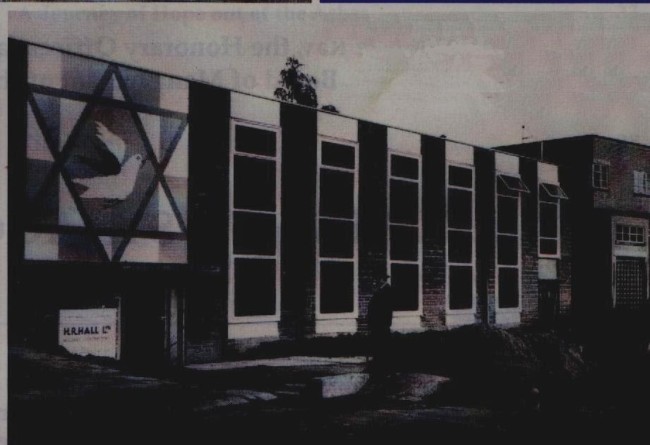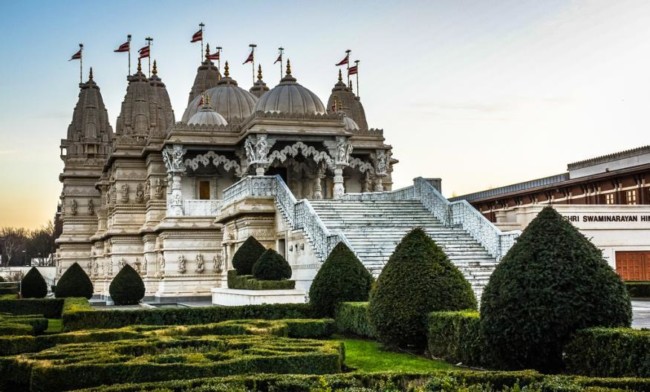Black flight is on because the moralising Left have moved to Tuscany
The Guardian’s Hugh Muir talks of “black flight”. The teaser explains the phrase: “Black flight: how England’s suburbs are changing colour.”
What is remarkable in our national story is the extent to which thousands of… black and Asian Brits have followed that trajectory [from the city centre to the suburbs].
It isn’t the least bit remarkable, is it. The Jews moved to London’s East End because they were poor, housing there was cheap and you could get manual work in the big city. As they set up their own companies and got more money they sought more space and moved out, first along the Tube lines, then further from city. As for Jews, so too for Irish, Huguenots, Asians and, well, every immigrant group to have settled in England.
Muir says that “less talked about” than “white flight” is the “growing movement of visible minorities into the heartlands of Englishness”. What’s Englishness, then? We’re not told. But he suggests it means not being a victim, but a member the white, working-class public who voted Leave in the EU Referendum. Remainers narrate that the EU stopped the UK from being a racist country. Voting for Brexit was not a vote for self-determination, an end to independent states being trampled on, democracy, risk, change and an enlarged world view. It was a vote for bigotry, so the losers say.
Says Muir:
In post-referendum Britain we have seen sudden waves of intolerance.
We have?
Eastern Europeans told to go home. A BBC reporter branded a “Paki” in the English town where she was born. An African-American on a bus told by fellow passengers to go back to Africa. This is distressing.
Racial abuse is abhorrent. Thankfully, the shock value to the rest of us is in the rarity of such attacks. And before we go on, what of the “surge”? The Indy reported:
Reports of hate crime have risen 57 per cent in the aftermath of the EU referendum vote, according to the National Police Chiefs’ Council. There were 85 reports of hate crimes to True Vision, a police-funded reporting website, between Thursday and Sunday compared with 54 reports over the same period four weeks ago.
True Vision was launched by the Association of Chief Police Officers in 2011. On 18 May 2011, it was announced that Gary Dobson and David Norris would face trial over the murder of Stephen Lawrence following a review of forensic evidence that the “institutionally racist” police force missed. Valuable or not, True Vision is foremost an exercise in police PR.
Mark Hamilton, Assistant Chief Constable for the National Police Chiefs’ Council Lead for Hate Crime, was quoted in the Indy:
“At the national level, the vast majority of people are continuing to go about their lives in safety and security and there have been no major spikes in tensions reported.
“However, we are seeing an increase in reports of hate crime incidents to True Vision, the police online hate crime reporting site. This is similar to the trends following other major national or international events. In previous instances, crime levels returned to normal relatively quickly but we are monitoring the situation closely.”
Muir continues:
John Betjeman would have spotted it immediately, for it is via the former poet laureate and his celebrated 1973 BBC documentary Metroland that the traditional perception of the English suburbs has been formed. On a gentle jaunt, in his gentle way, he described communities stretching from Neasden in north-west London all the way to the Chiltern Hills, along the path of the Metropolitan underground line. Betjeman’s suburbia spoke of cricket pitches, golf clubs, women’s institutes and verdant farmland: a new life for indigenous Britons at arm’s length from the bustle and smoke of London.
Indigenous Britons who were living in Neasden, north-west London, in the 1970s took flight? I know Neasden well, very well. It was there and in nearby Hendon my immigrant family settled after moving from Stepney Green and Old Ford in London’s East End, and inner-city Leeds. They sold their Neasden home to an Irish family and went down The Bakerloo line (now the Jubilee Line) to Stanmore.
Muir says black flight “tells us that minorities themselves feel psychologically able to move to new areas.” No. It tells us they got enough money to buy a home with a garden and garage. It tells us also that rising housing costs and declining school quality encourage human beings to move.
Muir then adds:
One can’t be Pollyannaish about this, as alongside black flight, demographers detect an extension of white flight. Minorities move out; many white Britons move out even further. But perhaps there is a natural filtering system at play, and perhaps that’s for the best. Those who can be comfortable with a changing Britain embrace it or make the best of it. Those who can’t just pack up and leave.
Before long the only people living in London’s village will be Guardian writers basking in self-affirmation, fretting over the falling FTSE and using their London borough’s diverse population and ‘filtering system’ as a signal of their virtue – unless they’re staying at their holiday homes in Italy, France and Cornwall.
Posted: 12th, July 2016 | In: Key Posts, Reviews 0 Comments | TrackBack | Permalink




